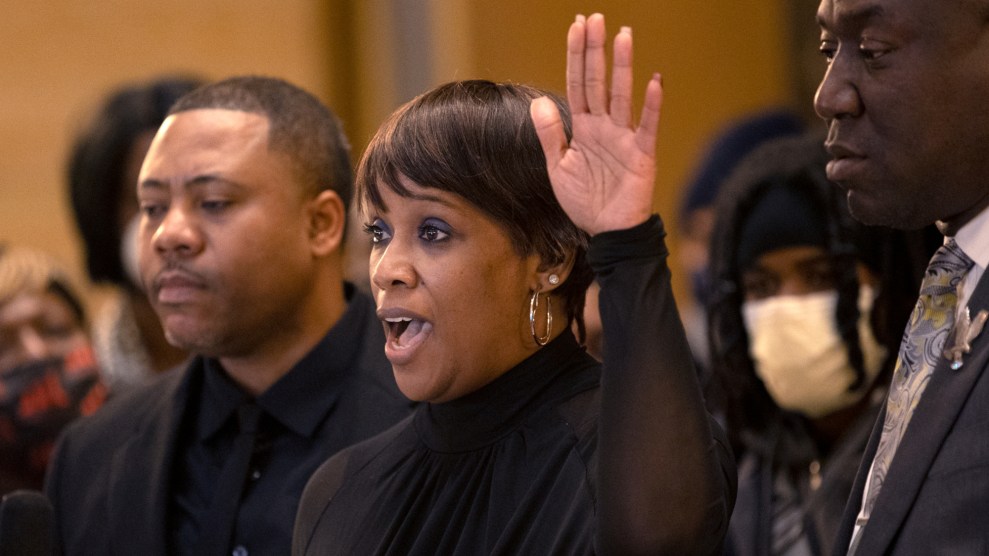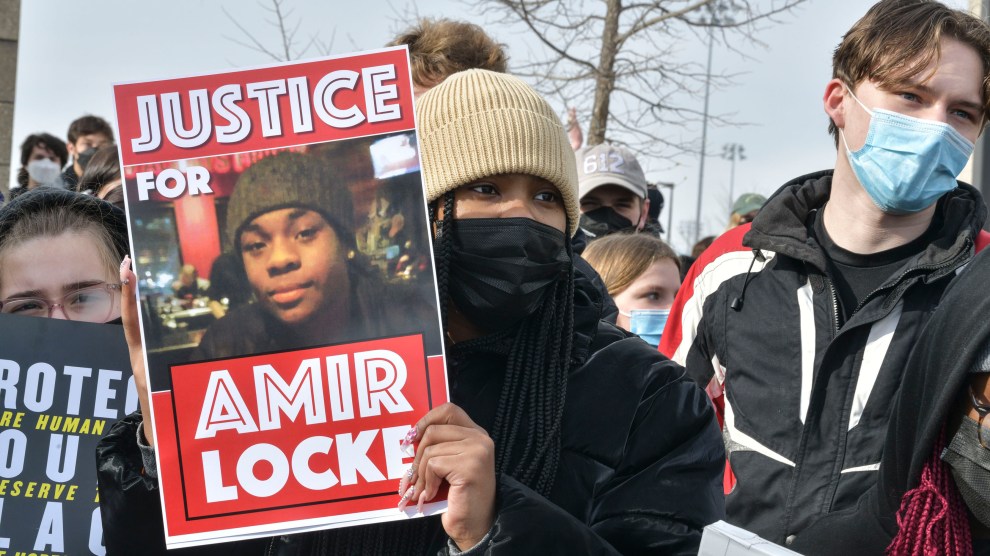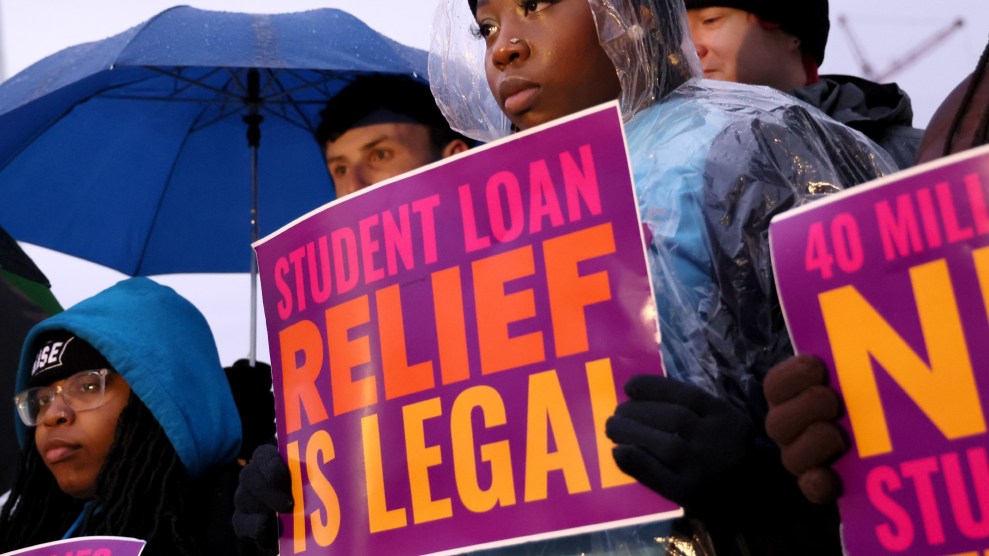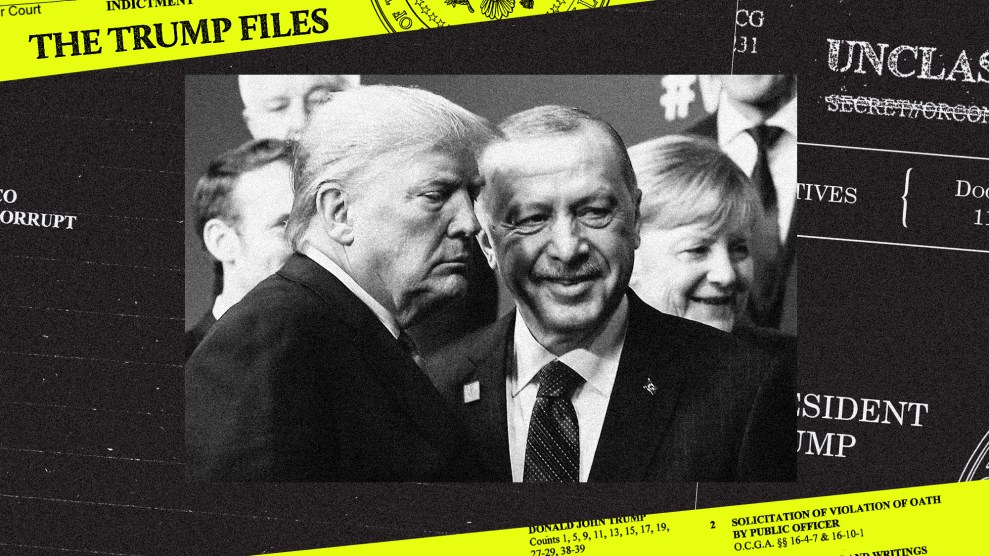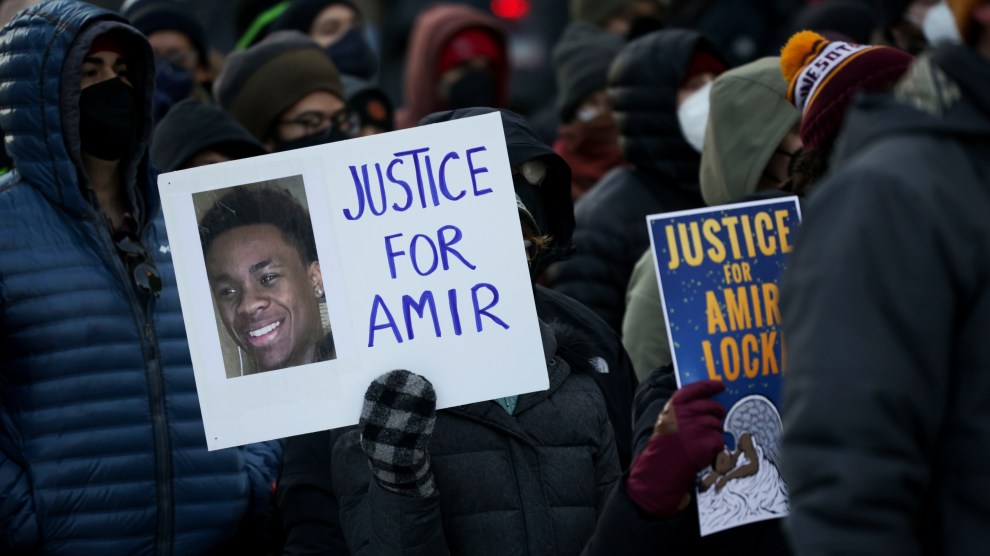
A protest for Amir Locke in Minneapolis in February 2022Christian Monterrosa/AP
The city of Minneapolis is asking a federal court to dismiss a lawsuit against the police officer who killed Amir Locke during a February 2022 raid that sparked protests.
Locke, a 22-year-old Black aspiring musician, was sleeping on a couch in his cousin’s Minneapolis home, a handgun at his side, when SWAT officers entered without knocking early in the morning. The officers were executing a search warrant related to a homicide, but Locke was not part of the investigation. Still, Officer Mark Hanneman shot him dead within 10 seconds. The killing, which occurred during the trial of three officers who participated in the murder of George Floyd, drew thousands of protesters.
Attorneys for the city filed their motion to dismiss Locke’s family’s suit on Thursday, ahead of a pretrial conference next week—and just one day before the Justice Department released a blistering report about widespread racism and brutality by the Minneapolis Police Department. The Justice Department also announced that the city would negotiate a federal consent decree to reform policing. “This work is foundational to the very health of our city,” Mayor Jacob Frey told reporters about the consent decree. “We have the power here to effect lasting change, to effect generational change, and we embrace that.”
According to the Minneapolis Star Tribune, Locke’s father, Andre “Buddy” Locke, said it felt strange to watch officials talk about police reform the same week that the city was trying to dismiss his family’s lawsuit. It was an “amazing day,” he said on Friday, but also “a slap in the face.”
The lawsuit names Officer Hanneman and the city of Minneapolis as defendants, accusing them of wrongful death and other violations of Locke’s constitutional rights. “Amir, like many Americans, had a handgun within his reach while he slept,” the complaint states, contesting the police’s claim that he pointed the gun at them. Last year, prosecutors declined to press criminal charges against Hanneman. But the lawsuit accuses him of shooting too quickly, without giving Locke a chance to come to his senses as he emerged from sleep. “Any reasonable officer would have understood that Amir needed an opportunity to realize who and what was surrounding him, and then provide Amir with an opportunity to disarm himself,” the complaint states. “Hanneman failed to give Amir any such opportunity.”
The lawsuit notes that police barged into the home with a no-knock warrant, a type of warrant that became more controversial after officers in Louisville, Kentucky, obtained one and then killed Breonna Taylor in 2020. The warrants are disproportionately leveled against people of color and often lead to causalities. Ahead of Locke’s death, Mayor Frey misleadingly claimed during a reelection campaign that he’d banned them in Minneapolis. (Afterward, Frey clarified that he sought to restrict their use, rather than banning them.) The complaint alleges that the city’s use of a no-knock warrant against Locke was “consistent with Minneapolis’s custom, pattern and practice of racial discrimination in policing.”
That language is similar to the Justice Department’s overall findings about the Minneapolis Police Department. The DOJ report, which examines policing in the city over the past several years and only makes a brief reference to Locke’s case, states that there is “reasonable cause to believe that MPD and the City engage in a pattern or practice of conduct that deprives people of their rights under the Constitution and federal law.”
On Thursday, the city’s attorneys argued the court should dismiss Locke’s family’s lawsuit because the officer was justified. “[F]iring his weapon at Amir Locke was objectively reasonable,” the city claimed, because “Hanneman could have reasonably believed Lock could kill or seriously injure him or another person. Hanneman is not liable for Locke’s death under any legal theory.” And, even while the Justice Department report makes clear there’s a pattern of unconstitutional conduct by the Minneapolis police, the city’s attorneys argued that Locke’s family did not submit any evidence demonstrating a pattern of relevant misconduct: “The Complaint provides no factual allegations demonstrating a widespread pattern of unconstitutional misconduct by MPD officers similar to the allegations here.” Misconduct unrelated to police raids would not be relevant, the attorneys argued.
The Justice Department’s report did not focus on no-knock raids, other than to mention Locke’s case, so it’s unclear how or if it will affect the lawsuit. Both sides are scheduled to return to court next week.

